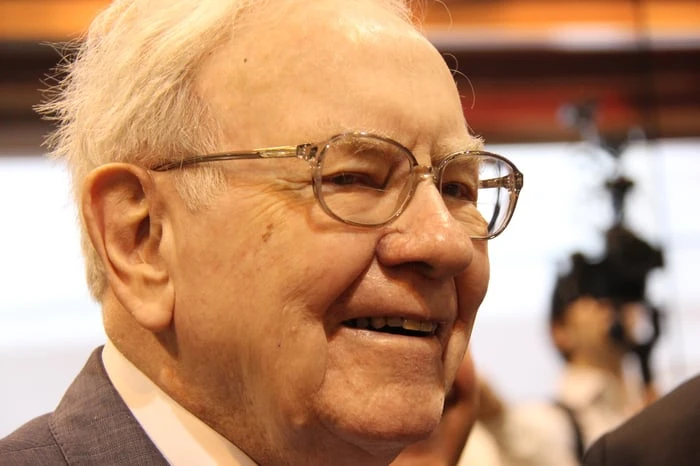Contents
Introduction
For over fifty years, mirroring the investment strategies of Warren Buffett has proven to be a lucrative endeavor for investors. Since becoming the CEO of Berkshire Hathaway, the “Oracle of Omaha” has led the company to achieve an astronomical return of over 5,400,000% in its Class A shares as of September 13.
Buffett’s Investment Philosophy
Warren Buffett is renowned for his willingness to share the traits he seeks in what he terms “wonderful companies.” These traits include sustainable competitive advantages or moats, strong management teams, and businesses with proven track records often coupled with exceptional capital-return programs.

The Power of Portfolio Concentration
A less acknowledged factor in Berkshire Hathaway’s long-term success is Buffett’s strategy of portfolio concentration. Despite managing a diverse portfolio of 43 stocks valued at $309 billion (excluding exchange-traded funds), a significant portion of the capital is invested in a select few ideas that Buffett deems the best. Remarkably, about 53% of Berkshire’s invested assets are concentrated in just three dominant stocks.
Apple: The Largest Holding
Overview
– Investment Value: $89 billion
– Percentage of Invested Assets: 28.8%
Despite selling over 500 million shares of tech giant Apple in recent quarters, Berkshire Hathaway still holds 400 million shares, making up nearly 29% of its invested assets.
Buffett’s Perspective
During the annual shareholder meeting in May, Buffett hinted that potential increases in corporate tax rates influenced his decision to sell a significant stake in Apple, aiming to lock in gains at a lower tax rate. Nevertheless, he continues to have immense confidence in Apple’s CEO, Tim Cook, and the company’s robust business model.
Apple’s Business Strengths
Apple is globally recognized as one of the strongest brands. Its products require minimal marketing as consumers eagerly await each new release. Beyond its physical products, Apple’s strategic shift towards subscription services is noteworthy. This focus on recurring revenue is expected to enhance margins, foster customer loyalty, and stabilize revenue fluctuations typically seen with major iPhone upgrades.
Apple’s market-leading share buyback program is another significant aspect. Since 2013, Apple has repurchased approximately $700 billion worth of its stock, reducing its outstanding share count by 42.2%. This has incrementally boosted Berkshire Hathaway’s ownership stake and enhanced Apple’s earnings per share.

American Express: A Long-standing Investment
Overview
– Investment Value: $39.3 billion
– Percentage of Invested Assets: 12.7%
American Express stands as the second-largest holding in Buffett’s portfolio, with Berkshire retaining it since 1991.
Strategic Appeal
Buffett’s affinity for financial stocks is rooted in their cyclical nature. He recognizes that economic downturns are often short-lived, while growth periods can be extensive. American Express is well-positioned to capitalize on prolonged growth phases.
Dual Revenue Streams
AmEx benefits from both sides of transactions. As the third-largest payment processor in the U.S. by credit card network purchase volume, it earns predictable fees from merchants. Additionally, as a lender issuing credit cards, it collects annual fees and interest income, allowing it to “double-dip” in transactions.
Targeting High-Earning Clients
American Express has successfully attracted high-earning clients, who are less likely to change their spending habits or default during economic downturns. This positions AmEx more favorably than many lenders in navigating potential recessions.
Dividend Yield on Cost
Berkshire’s cost basis in AmEx is an exceptionally low $8.49 per share. Consequently, the annual dividend payout of $2.80 per share translates to a 33% annual yield on cost for Berkshire, effectively doubling the initial investment every three years through dividends alone.
Bank of America: A Cyclical Financial Giant
Overview
– Investment Value: $33.2 billion
– Percentage of Invested Assets: 10.7%
Bank of America is the third-largest holding that, along with Apple and American Express, constitutes about 53% of Berkshire’s invested assets.
Recent Activity
Recently, Buffett’s sale of nearly 174 million shares of Bank of America has garnered attention. This selling could be strategic or indicative of a broader concern, such as preparing for potential market corrections.
Cyclical Nature and Interest Sensitivity
The cyclical nature of banks makes them appealing investments, as they grow loan portfolios and increase interest income over time. Bank of America, in particular, is highly sensitive to interest rate changes. The 525-basis-point rise in the federal funds rate since March 2022 has significantly boosted its net interest income. However, with the Federal Reserve expected to begin easing rates, Bank of America’s bottom line could face pressure.
Potential Changes in Stake
Berkshire’s stake in Bank of America has decreased to 11.1% of the bank’s outstanding shares. Should this fall below 10%, Buffett would no longer need to disclose transactions individually, leaving investors to rely on quarterly filings for updates on his investment activities.




